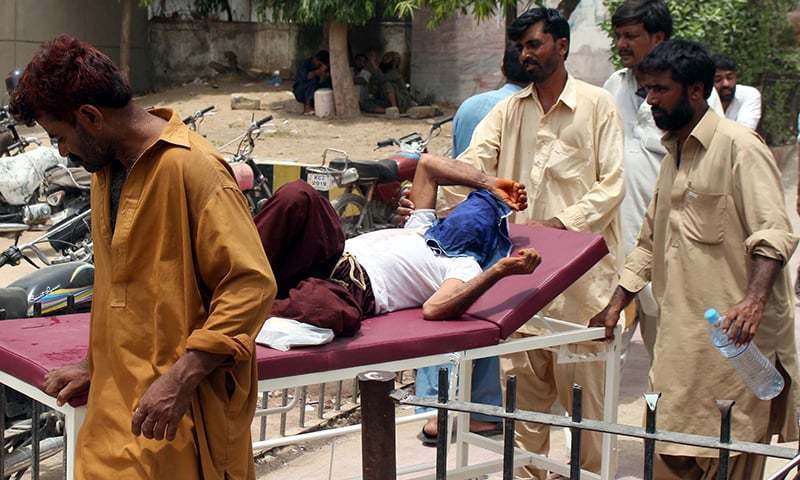KARACHI: The devastating heatwave that struck Sindh last weekend is slowly subsiding but the toll has climbed to 1,242 with 32 deaths reported in Karachi on Saturday.
Various government-run hospitals in Karachi confirmed that at least 32 people died of heatstroke on Saturday. At least 13 people died in Jinnah Postgraduate Medical Centre (JPMC), 11 in Abbasi Shaheed Hospital (ASH), two in Qatar Hospital, three in hospitals owned by Karachi Municipal Corporation (KMC) and three in other hospitals in the city.
The crisis centred in Karachi was worsened by poor service delivery, including a faulty power grid and shortage of potable water.
Take a look: Fresh deaths, unclaimed bodies raise heatwave toll
After peaking at around 45 degrees Celsius last weekend, the heat has subsided and the city's customary cooling sea breeze has started up, bringing relief to its 20 million inhabitants.
At times this week the city's morgues struggled to cope with the influx of the dead, many of whom were elderly, destitute or drug addicts.
Yesterday, Edhi Foundation’s representative Faisal Edhi said his morgue had received close to 200 unclaimed bodies since Saturday and 140 of them were buried at Edhi’s graveyard in Muwachh Goth after no one came to claim them.
Karachi's hospitals have treated nearly 80,000 people for the effects of heatstroke and dehydration during the week, according to medical officials.
Read more: Mass funeral for unclaimed victims of deadly Karachi heatwave
Many of those who died were outdoor manual labourers, who are paid by the day and may be reluctant to stop work as it would mean losing income.














































